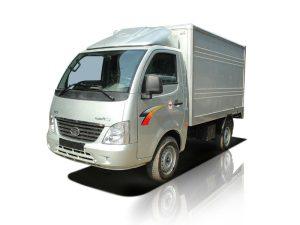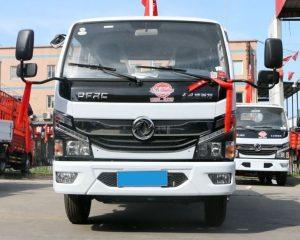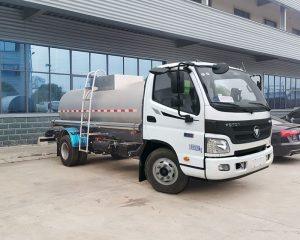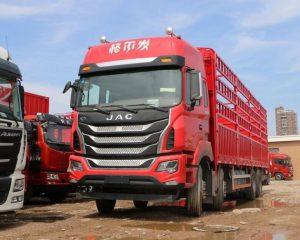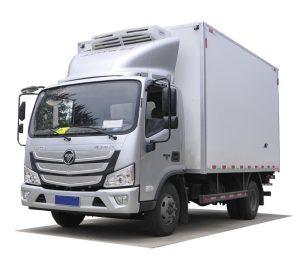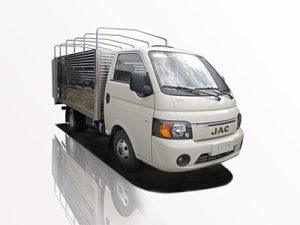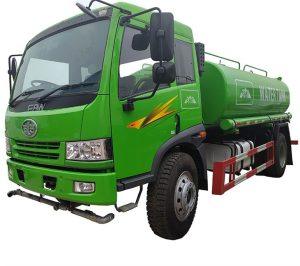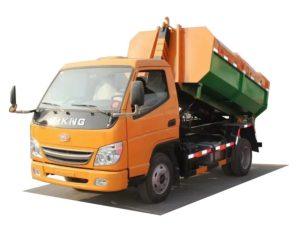Monday to Saturday - 8:00 -17:30
Understanding Refuse Compactor Trucks: A Complete Guide
Introduction
In the world of waste management, refuse compactor trucks play a crucial role. These specialized vehicles are designed to collect, compact, and transport waste efficiently. With increasing urban population and escalating waste production, the demand for practical and effective waste disposal solutions has never been greater. This article will delve into every aspect of refuse compactor trucks, including their types, benefits, features, and maintenance practices, ensuring that you have a comprehensive understanding of these essential machines.
What is a Refuse Compactor Truck?
A refuse compactor truck is a heavy-duty vehicle specifically designed for the collection and transportation of municipal solid waste. Features of these trucks include a mechanism to compress waste, increasing the vehicle’s load capacity and optimizing waste collection efficiency.
How Do Refuse Compactor Trucks Work?
Refuse compactor trucks operate through a simple mechanism: waste is collected in the truck’s container where powerful hydraulics compress it, reducing its volume. This compacting process allows for more efficient transport and disposal, ultimately saving time and resources.
Types of Refuse Compactor Trucks
- Front-Loading Compactors: Ideal for commercial waste collection, these trucks have a compaction mechanism at the front. They are loaded from the front and are efficient for businesses with centralized waste disposal.
- Rear-Loading Compactors: These trucks allow for waste collection from the back. They are popular in residential areas where bins are placed along streets.
- Side-Loading Compactors: These models allow the operator to collect waste from the side, making them suitable for tighter spaces and narrow streets.
Benefits of Using Refuse Compactor Trucks
Increased Efficiency
Refuse compactor trucks are designed to streamline the waste collection process. By compacting the waste, these trucks can carry more load with fewer trips, offering significant time savings.
Cost-Effective Waste Management
While the initial investment for a refuse compactor truck may be higher than a regular waste collection vehicle, the reduction in trips to disposal sites leads to lower operational costs over time.
Environmental Impact
With efficient compaction, refuse compactor trucks contribute to reduced emissions. By decreasing the number of trips necessary for waste disposal, they help minimize the carbon footprint associated with waste management.
Improved Safety
Modern refuse compactor trucks come equipped with safety features, including backup alarms, cameras, and robust construction to ensure the safety of the operators and the public during collection operations.
Key Features of Refuse Compactor Trucks
Compaction Mechanism
The core feature of any refuse compactor truck is its compaction mechanism. This system not only reduces waste volume but also ensures that the load shifts less during transport, promoting stability.
Hydraulic System
A dependable hydraulic system is crucial for operating the compaction mechanism. These systems are designed to withstand high pressures to effectively compress heavy waste materials.
Container Types
Refuse compactor trucks generally feature containers made from steel or aluminum. Steel containers offer durability and resistance to wear and tear, while aluminum provides a lightweight option that can improve fuel efficiency.
Technological Integration
Many modern refuse compactor trucks incorporate advanced technology, such as GPS and route optimization software. These innovations enhance operational efficiency by providing real-time data to improve routing and scheduling.
How to Choose the Right Refuse Compactor Truck
Assessing Your Needs
Before purchasing a refuse compactor truck, it is essential to evaluate your waste collection requirements. Factors such as the volume of waste generated, types of materials collected, and frequency of disposal will influence your decision.
Size and Capacity
Refuse compactor trucks come in various sizes, with capacities typically ranging from 10 to 30 cubic yards. Choosing the correct size ensures that you can handle your waste efficiently without unnecessary trips to disposal facilities.
Budget Considerations
While refuse compactor trucks can be expensive, it is essential to consider total ownership costs, including fuel, maintenance, and expected lifespan. Be sure to compare models and seek out financing options that can ease the upfront burden.
Maintenance Tips for Refuse Compactor Trucks
Regular Inspections
Routine checks on the hydraulic systems, compaction mechanisms, brakes, and tires are vital. Regular inspections can help prevent breakdowns and maintain efficient operations.
Hydraulic Fluid Checks
Maintaining the correct levels of hydraulic fluid is critical for the operation of the compaction mechanism. Ensure that there are no leaks and that the fluid is replaced as needed.
Cleaning the Container
To prevent odors and maintain hygiene, regularly clean the refuse container. This practice not only supports a healthier environment but also extends the vehicle’s lifespan.
Monitoring Tire Condition
Tires are critical for the safety and efficiency of refuse compactor trucks. Regularly check for wear and ensure proper inflation to maintain optimal performance and fuel efficiency.
Comparing Refuse Compactor Trucks: A Quick Overview
| Truck Type | Loading Mechanism | Ideal Use | Advantages |
|---|---|---|---|
| Front-Loading | Front | Commercial Businesses | Highly efficient for centralized waste collection. |
| Rear-Loading | Rear | Residential Areas | More accessible for residential waste disposal. |
| Side-Loading | Side | Narrow Streets | Ideal for tight spaces with limited access. |
Practical Examples of Refuse Compactor Truck Uses
Urban Waste Management
In bustling cities, refuse compactor trucks are essential for managing the significant volume of waste generated daily. These trucks help local governments ensure cleanliness and sustainability in urban environments.
Commercial Use in Shopping Centers
Shopping centers produce a diverse range of waste, from food scraps to packaging materials. Front-loading refuse compactor trucks are often used in these situations, efficiently managing large volumes of waste while minimizing disruption.
Construction Site Waste Collection
Construction sites generate considerable waste, including debris and surplus materials. Many contractors utilize side-loading compactor trucks for their agility and ease of use in tight working conditions.
Future Trends in Refuse Compactor Trucks
Electric Refuse Compactor Trucks
As sustainability becomes increasingly important, the industry is witnessing a trend towards electric refuse compactor trucks. These vehicles promise to reduce emissions and operational costs while delivering comparable performance to traditional diesel-powered trucks.
Smart Technology Integration
Future refuse compactor trucks are likely to leverage smart technology, incorporating AI and IoT capabilities for better route planning, real-time tracking, and enhanced waste sorting capabilities.
Increased Focus on Recycling
As communities strive to enhance recycling efforts, refuse compactor trucks will likely evolve to support more efficient segregation of recyclables, making it easier to promote sustainable waste practices.
FAQs
1. How much does a refuse compactor truck cost?
The cost of a refuse compactor truck can range from $200,000 to $400,000, depending on the type, size, and features. Additional costs may include maintenance and fuel expenses.
2. What types of waste can be collected by refuse compactor trucks?
Refuse compactor trucks can handle various types of waste, including municipal solid waste, construction debris, recyclables, and organic materials, depending on the truck type and configuration.
3. How often should refuse compactor trucks be maintained?
Regular maintenance checks are recommended every 3,000 to 5,000 miles, while daily inspections of key components should be conducted to ensure optimal performance and safety.
4. Can refuse compactor trucks be used for recycling purposes?
Yes, many refuse compactor trucks are designed to collect recycling materials. Specialized models can be configured to segregate recyclables from general waste, promoting sustainable practices.
5. What is the typical lifespan of a refuse compactor truck?
The average lifespan of a refuse compactor truck ranges between 10 to 15 years, provided it receives proper maintenance and care throughout its operational life.
6. Are there any alternatives to refuse compactor trucks?
Yes, alternatives include traditional waste collection trucks, recycling trucks, and waste transfer stations, but refuse compactor trucks are known for their efficiency in compaction and transportation of municipal waste.


